Date: Wednesday, April 20, 2022, 2:00 – 3:00 PM ET
Webinar Description:
Next year, nearly a third of the nation’s law schools will be recruiting new deans. Are you thinking about throwing your hat in the ring? We invite aspiring deans to an hour-long Zoom discussion organized by the Executive Committee of the AALS Deans Section to be held at 2-3:00 PM ET on April 20. In this highly interactive program, participants will select two of three break-out sessions, facilitated by experienced deans: (1) Is being a dean right for you and are you right for being a dean? A discussion of skill sets and preparation to be an effective dean, and the upsides and downsides of the position. (2) How to successfully apply for a deanship: A discussion of building experience, writing an effective application letter, and preparing for interviews. And (3) What’s it really like to be a dean? A discussion of leadership, management, fundraising, advancing diversity and inclusion, and handling crises.
*This Webinar was not Recorded
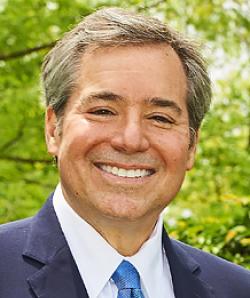
Michael Scharf, Dean, Case Western Reserve University School of Law
Michael Scharf has been Co-Dean of the Law School since 2013. He is also the Joseph C. Hostetler—BakerHostetler Professor of Law and serves as Managing Director of the Public International Law and Policy Group, a Nobel Peace Prize-nominated NGO. He has led USAID-funded transitional justice projects in Uganda, Cote d’Ivoire, Libya, and Turkey (for Syria), and maritime piracy projects in Kenya, Mauritius, and The Seychelles. During a sabbatical in 2008, Scharf served as Special Assistant to the Prosecutor of the Cambodia Genocide Tribunal and during the elder Bush and Clinton Administrations, he served in the Office of the Legal Adviser of the U.S. Department of State, where he held the positions of Attorney-Adviser for Law Enforcement and Intelligence, Attorney-Adviser for United Nations Affairs, and delegate to the United Nations Human Rights Commission. A graduate of Duke University School of Law (Order of the Coif and High Honors), and judicial clerk to Judge Gerald Bard Tjoflat on the Eleventh Circuit Federal Court of Appeals, Scharf is the author of over 100 scholarly articles and 20 books, four of which have won national book of the year honors. A past recipient of the Case Western Reserve University School of Law Alumni Association’s “Distinguished Teacher Award” and Ohio Magazine’s “Excellence in Education Award,” Scharf continues to teach International Law and was ranked as among the most cited authors in the field since 2010 by the 2016 and 2019 Sisk/Leiter studies. Since 2013, Scharf has been the producer and host of “Talking Foreign Policy,” a radio program broadcast on WCPN 90.3 FM and other NPR affiliates across the country. In 2019 Scharf was selected for life membership in the Council on Foreign Relations, in 2020 he was elected President of the American Branch of the International Law Association, and in 2021 he was elected to the Executive Council of the American Society of International Law.
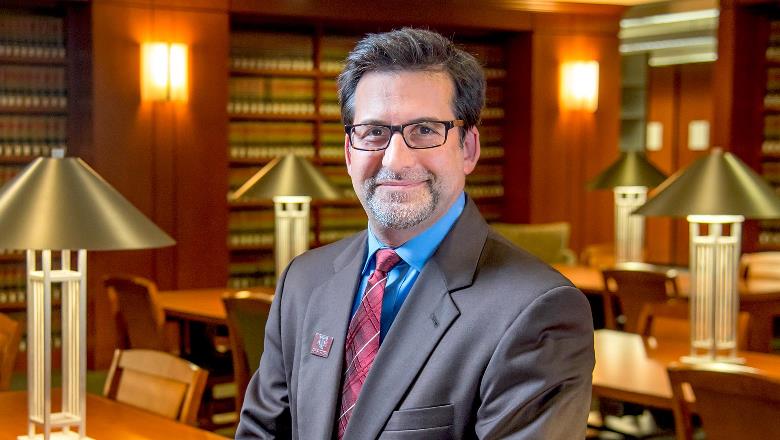 Robert B. Ahdieh, Dean and Anthony G. Buzbee Endowed Dean’s Chair, Texas A&M University School of Law
Robert B. Ahdieh, Dean and Anthony G. Buzbee Endowed Dean’s Chair, Texas A&M University School of LawA graduate of Princeton University’s Woodrow Wilson School of Public and International Affairs and Yale Law School, Robert B. Ahdieh served as law clerk to Judge James R. Browning of the US Court of Appeals for the Ninth Circuit before his selection for the Honor’s Program in the Civil Division of the US Department of Justice. While still in law school, Ahdieh published what remains one of the seminal treatments of the constitutional transformation of post-Soviet Russia: “Russia’s Constitutional Revolution—Legal Consciousness and the Transition to Democracy.” Ahdieh’s work has also appeared in the Boston University Law Review, Michigan Law Review, Minnesota Law Review, NYU Law Review, and Southern California Law Review, among other journals. Ahdieh’s scholarly interests revolve around questions of regulatory and institutional design, especially in the financial arena. His particular focus has been on various non-traditional regulatory structures and modes of regulation, including those grounded in dynamics of coordination. Though relatively less studied in the legal literature, the framework of coordination holds significant promise both in helping us theorize existing regulatory patterns and in defining new regulatory constructs for the future. Ahdieh has served as a visiting professor at Columbia and Georgetown law schools, as well as at Princeton University. He has also visited at the Institute for Advanced Study, at the University of British Columbia, the University of Warsaw, and Singapore Management University, among other overseas institutions.
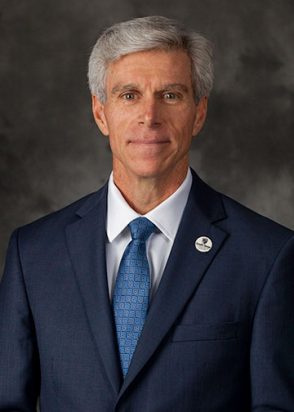 Michael Barry, President and Dean, South Texas College of Law Houston
Michael Barry, President and Dean, South Texas College of Law HoustonMichael F. Barry is the 11th president and dean of Houston’s oldest law school, South Texas College of Law Houston. For more than two decades, he has provided confident leadership, innovative strategies, actionable recommendations, and practical management to Fortune 200 clients, in higher education, and in community service.
Barry joined South Texas in fall 2019 after serving as assistant dean and practitioner in residence at St. Mary’s University School of Law in San Antonio, Texas. Among his responsibilities were developing new programs; increasing outreach to partners, donors, employers, and alumni; supporting and fundraising for initiatives that benefited St. Mary’s University and its students and alumni; managing law school operations to support faculty and student needs; and developing and teaching courses and extracurricular programs. Bringing business acumen, budgeting, change management, and leadership skills from his years in legal practice and in business, Barry initially designed St. Mary’s University School of Law’s comprehensive Law Success academic support program, became a leader in using data to support student success, and directed operations and budget for the School of Law. An engaged teacher, Barry excels at bringing real-world experiences into the legal classroom.
After graduating from the University of Virginia with a double major in English and Religious Studies, Barry received his law degree from Yale Law School. After graduation from Yale, he clerked for the Hon. Royce C. Lamberth, U.S. District Court Judge for the District of Columbia, and for Chief Judge Gerald Bard Tjoflat, United States Court of Appeals for the Eleventh Circuit. Barry then entered private practice in Phoenix, Arizona, where he litigated and tried cases involving patent infringement, financial services class actions, breach of contract, and Indian law in both federal and state court. He then joined Capital One in Richmond, Virginia, where he created and ran the litigation department. While in Richmond, Barry taught trial and appellate advocacy as an adjunct professor at the University of Richmond School of Law.
He then served as a senior executive at USAA in San Antonio, Texas, where he was senior vice president and deputy general counsel and led a legal staff of more than 350 people. At USAA, Barry ensured that the legal department established comprehensive and proactive legal and regulatory strategies to enable USAA’s insurance and banking businesses. While at USAA, Barry also worked on the business side, overseeing USAA’s Corporate Development, Global Service Delivery, and Operational Excellence divisions, as well as USAA’s Alliances businesses.
Barry continued his education by earning a Master of Arts in Theology from the University of San Francisco in 2009.
During his time in San Antonio, Barry served on the boards of several community service organizations including the San Antonio Lighthouse for the Blind, the Alamo Colleges Foundation, and The DoSeum. He also served as a member of the Board of Visitors for Southwestern University in Georgetown, Texas, and on several boards for the Archdiocese of San Antonio. He was a member of Class XII of Masters Leadership Program of San Antonio and Bexar County and directed the RCIA program at St. Anthony de Padua Catholic Church.
In 2018, Barry became the 107th member of the 50-sub-4 Running Club, composed of runners who have completed a full marathon in under four hours in all 50 states.
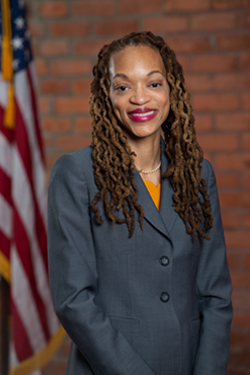 Jelani Jefferson Exum, Dean and Philip J. McElroy Professor of Law, University of Detroit Mercy School of Law
Jelani Jefferson Exum, Dean and Philip J. McElroy Professor of Law, University of Detroit Mercy School of LawJelani Jefferson Exum is a nationally recognized expert in sentencing law and procedure. Before joining academia, Dean Jefferson Exum served as a law clerk for the Honorable James L. Dennis, United States Circuit Judge for the Fifth Circuit Court of Appeals, and the Honorable Eldon E. Fallon, United States District Judge for the Eastern District of Louisiana.
Dean Jefferson Exum joined the Detroit Mercy Law faculty as the Philip J. McElroy Professor of Law in 2019 and as Dean for the School of Law in 2021. Prior to joining the Detroit Mercy Law faculty, she was a Professor of Law and Associate Dean for Diversity and Inclusion at the University of Toledo College of Law, an associate professor at the University of Kansas School of Law, and a visiting associate professor at the University of Michigan Law School. Dean Jefferson Exum has also been a Forrester Fellow and Instructor in Legal Writing at Tulane Law School.
Dean Jefferson Exum is a member of the Editorial Board of the Federal Sentencing Reporter, and her work has been featured on prominent sentencing blogs, such as Sentencing Law and Policy. Dean Jefferson Exum mainly writes in the area of sentencing law and policy, but her research interests also include comparative criminal law and procedure, policing, and the impact of race on criminal justice.
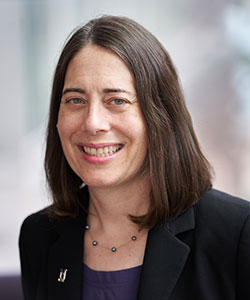 Hari M. Osofsky, Dean and Myra and James Bradwell Professor of Law, Northwestern Pritzker School of Law
Hari M. Osofsky, Dean and Myra and James Bradwell Professor of Law, Northwestern Pritzker School of LawHari M. Osofsky is dean and Myra and James Bradwell Professor of Law at Northwestern Pritzker School of Law and Professor of Environmental Policy and Culture (courtesy) at the Weinberg College of Arts and Sciences.
As dean, she is deeply committed to building legal education for a changing society through inclusive collaboration. Her leadership focuses on preparing students to lead in our changing society and profession; advancing diversity, equity and inclusion and social and racial justice; learning from the COVID-19 pivots; and innovating through interdisciplinary, multi-stakeholder, and international partnerships. She also is very involved in mentorship and sponsorship to support greater diversity in law school and university leadership. The American Bar Association’s Legal Technology Resource Center recognized her as one of the 2019 Women of Legal-Tech.
Dean Osofsky’s over 50 publications focus on improving governance and addressing injustice in energy and climate change regulation. Her scholarship includes books with Cambridge University Press on climate change litigation, textbooks on both energy and climate change law, and articles in leading law and geography journals. Dean Osofsky’s Emory Law Journal article, Energy Partisanship, was awarded the 2018 Morrison Prize, which recognizes the most impactful sustainability-related legal academic article published in North America during the previous year. Dean Osofsky has collaborated extensively with business, government, and nonprofit leaders to make bipartisan progress on these issues through her leadership roles and teaching. She is a fellow of the American College of Environmental Lawyers.
Her professional leadership roles have included, among others, serving as president of the Association for Law, Property, and Society and as a member of the Dean’s Steering Committee of the American Association of Law Schools, Executive Council of the American Society of International Law, International Law Association’s Committee on the Legal Principles of Climate Change, Board of Governors of the Society of American Law Teachers, and editorial board of Climate Law. Her leadership and mentorship work was recognized by the Association for Law, Property, and Society’s 2016 Distinguished Service Award and the University of Minnesota 2015 Sara Evans Faculty Woman Scholar/Leader Award.
Dean Osofsky received a PhD in geography from the University of Oregon and a JD from Yale Law School. She clerked for Judge Dorothy W. Nelson of the Ninth Circuit Court of Appeals. Prior to joining Northwestern University, Dean Osofsky served as dean of Penn State Law and the Penn State School of International Affairs and on the faculties of University of Minnesota Law School, Washington and Lee University School of Law, the University of Oregon School of Law, and Whittier Law School.
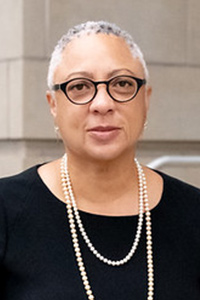 Sean M. Scott, President and Dean, California Western School of Law
Sean M. Scott, President and Dean, California Western School of LawSean Scott joined the California Western School of Law as dean and president in 2020. She was previously senior associate dean and associate dean for faculty at Loyola Law School, Los Angeles, where she expanded legal education through a variety of innovative programs including a Master of Science in Legal Studies, the Cybersecurity and Data Privacy Law program, and the Fashion Law Project.
Her innovative approach extended to the classroom as well, resulting in numerous honors, including the Student Bar Association’s prestigious Excellence in Teaching Award and the Black Law Students Association’s Distinguished Faculty Award.
Dean Scott’s academic interests include legal education, contracts, and disability rights. Her most recent article, Contractual Incapacity and the Americans with Disabilities Act, was published in the Dickinson Law Review and has been recognized by JOTWELL as one of the best works of recent scholarship in the areas of both contracts and elder law. Dean Scott speaks frequently on the topic of legal education and the diversification of the legal academy. Dean Scott currently serves on the Board of Governors of SALT and has served as Associate Director of the Association of American Law Schools (AALS).
Before joining academia, Scott was an associate in the Los Angeles office of Manatt, Phelps & Phillips, LLP. She earned her Juris Doctor from New York University School of Law and her Bachelor of Arts from Smith College.